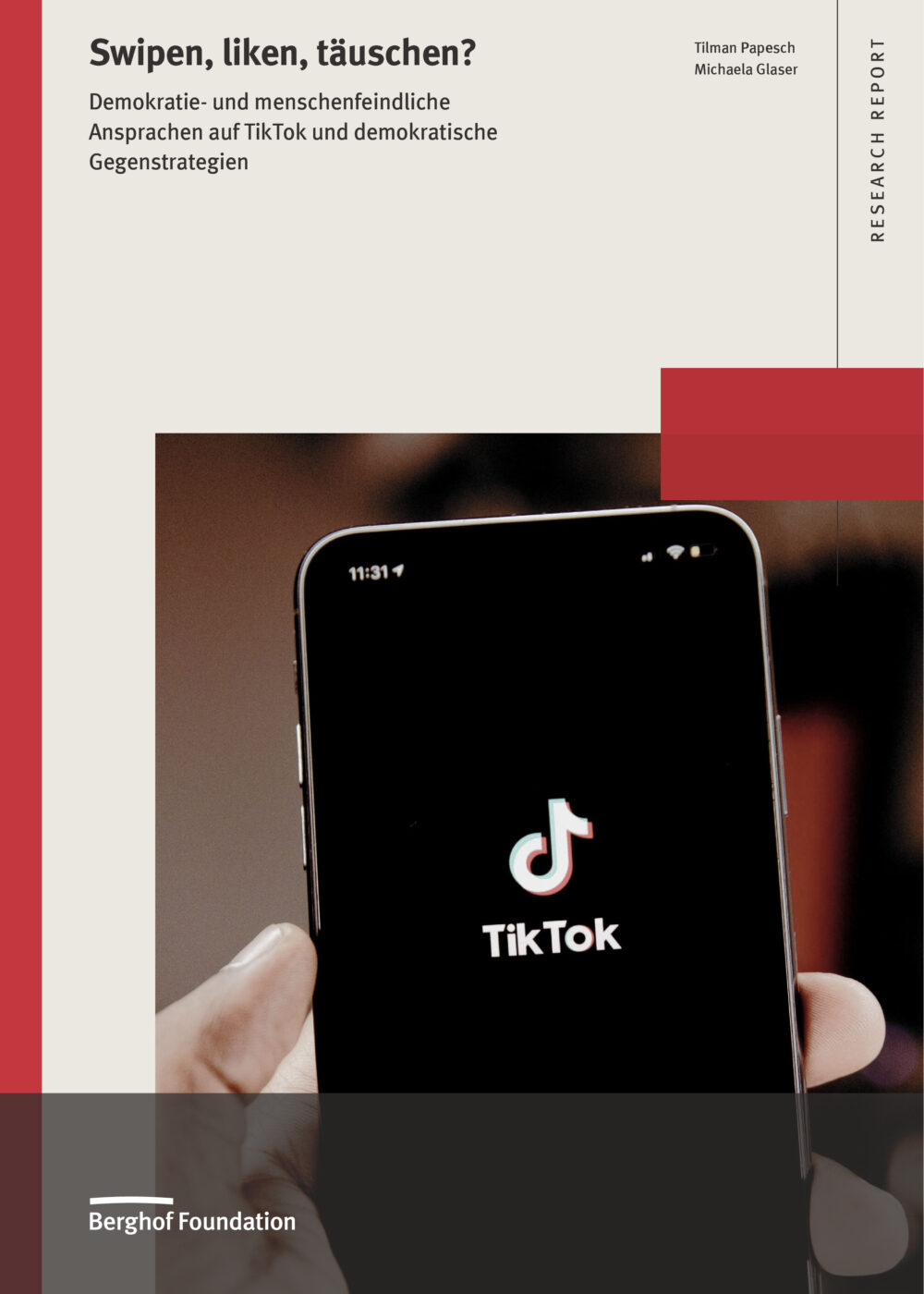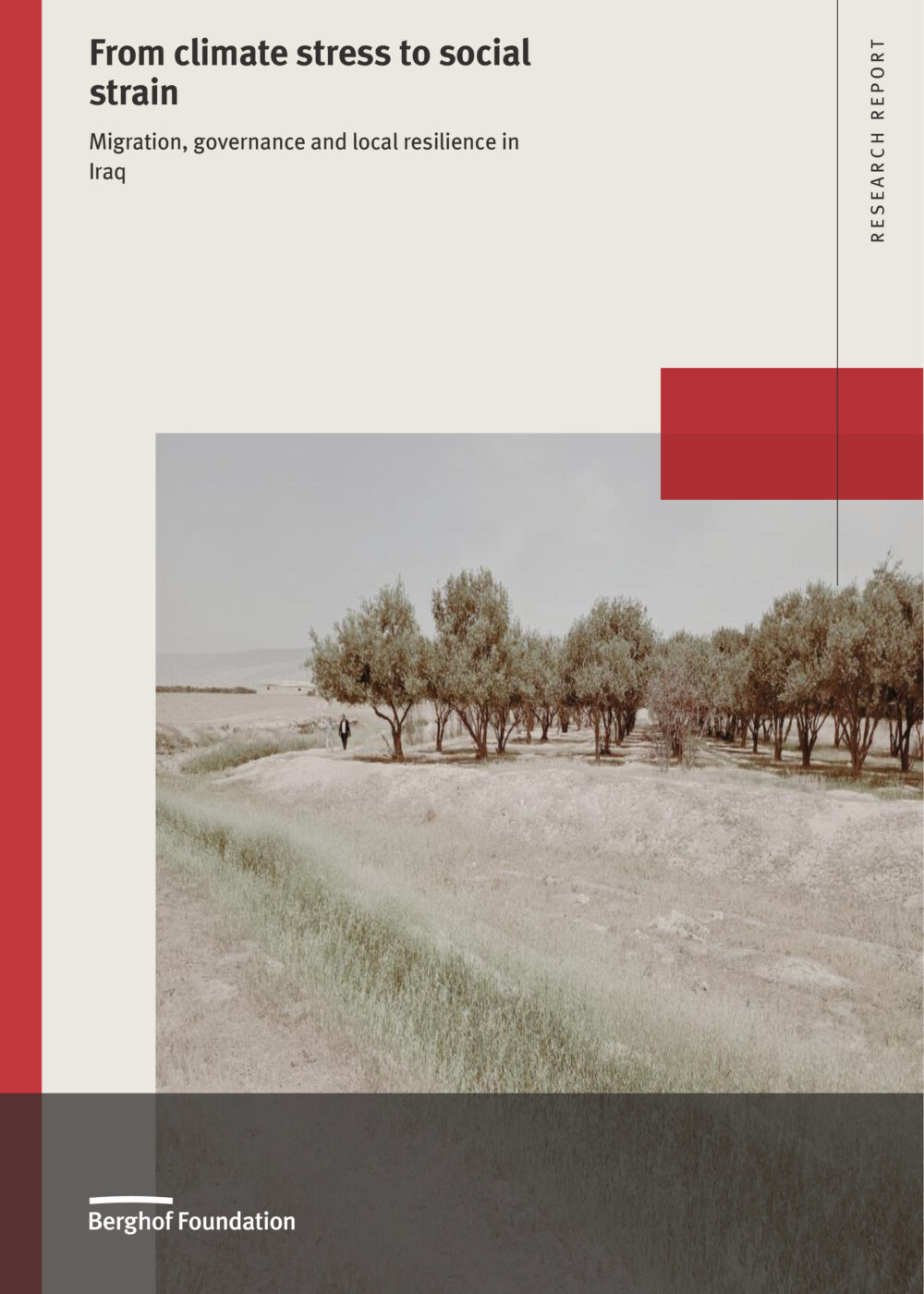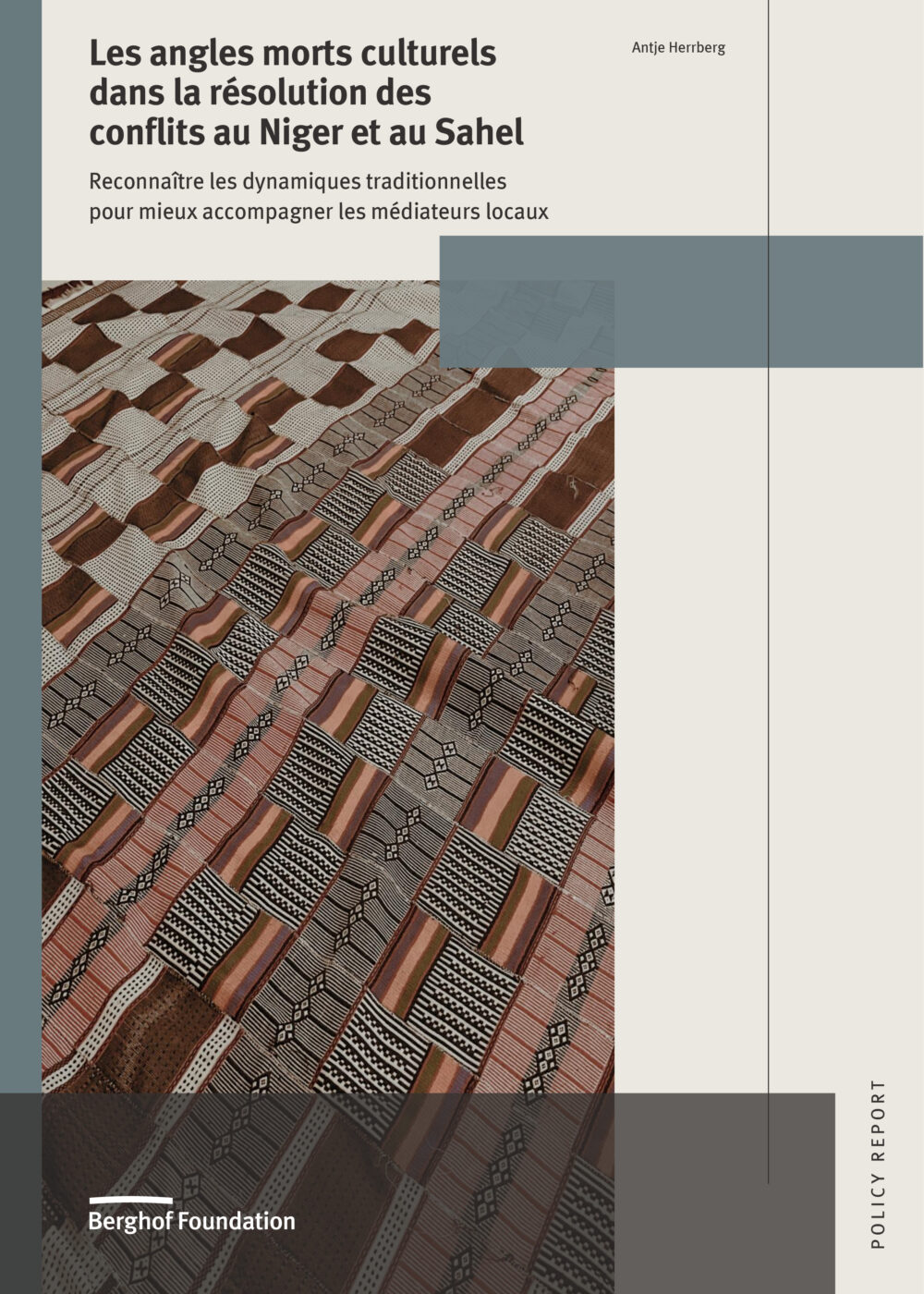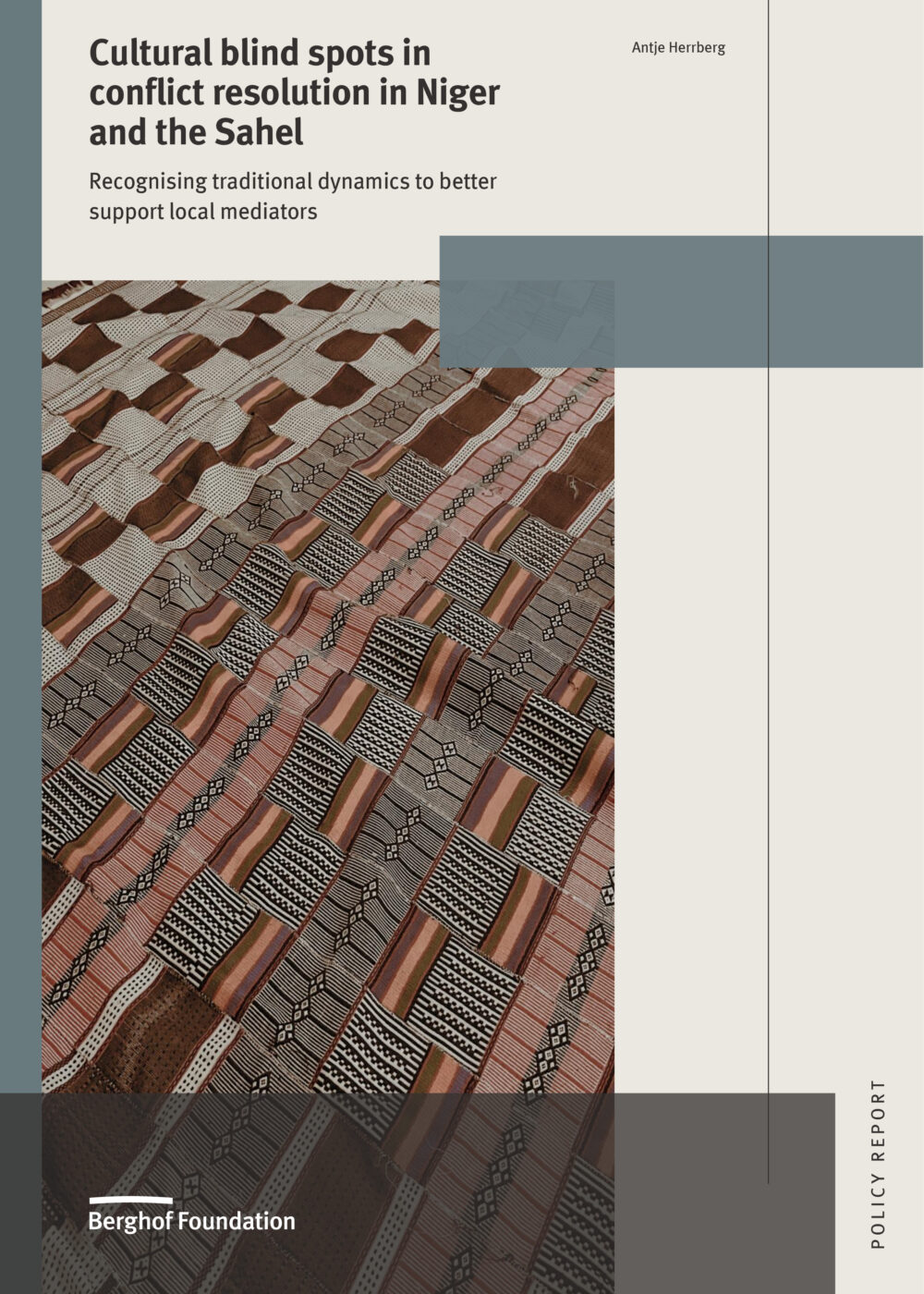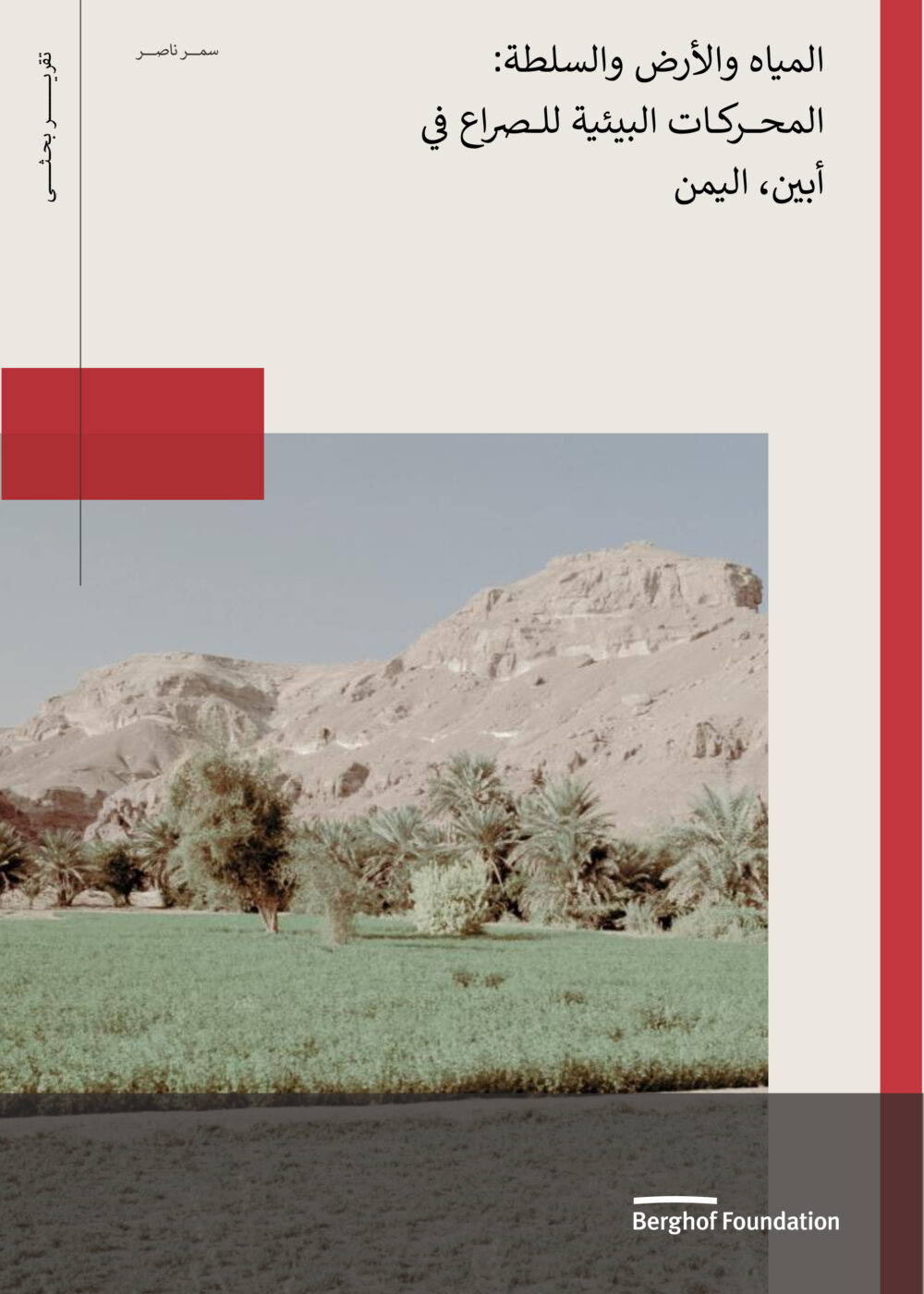30 Mar 2016
Grappling with the Stranglehold of the Past over Time: A Response
Berghof Handbook Dialogue Series No. 11 - final reflection
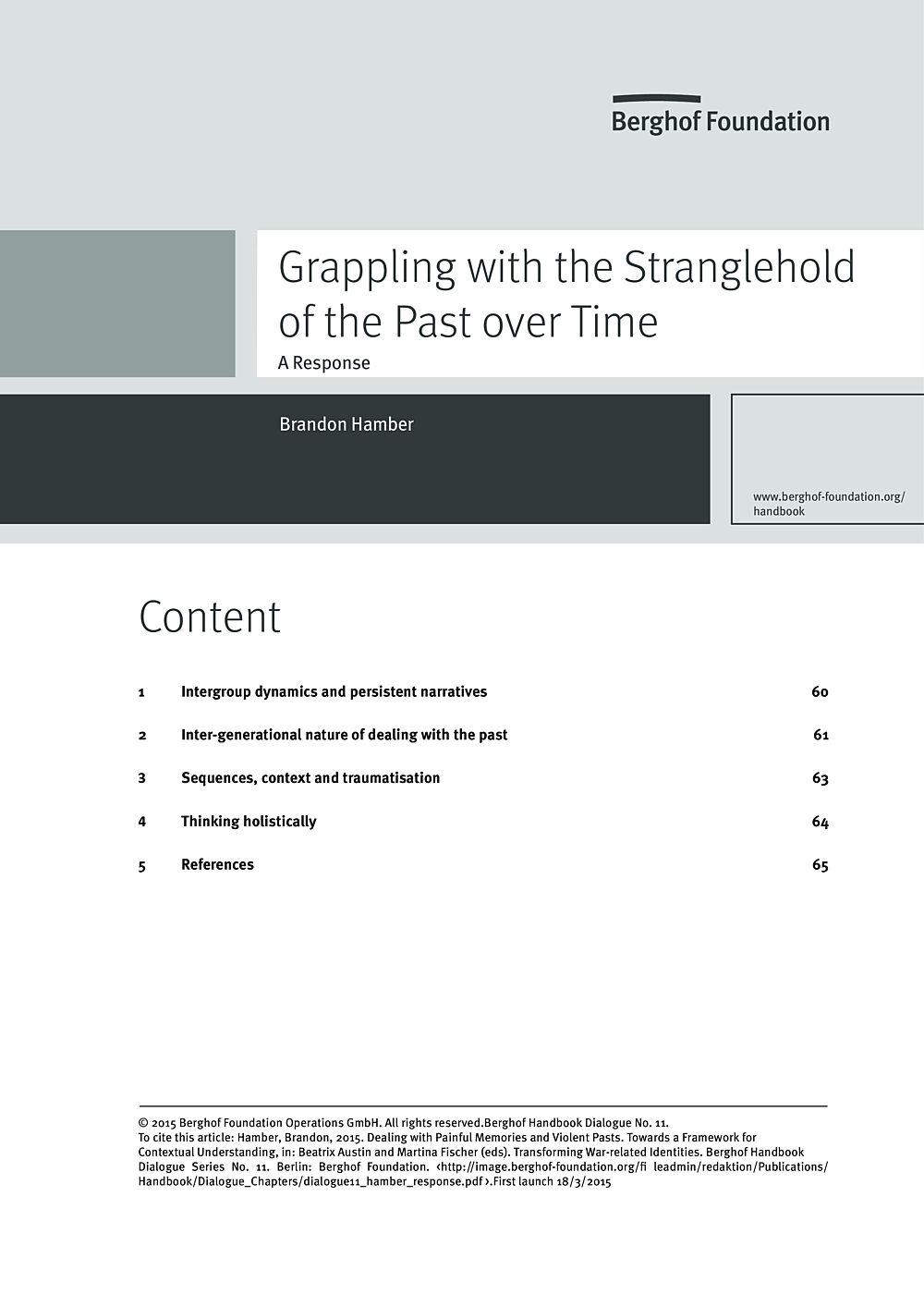
I cannot do justice to the rich and thoughtful comments on my essay “Dealing with Painful Memories and Violent Pasts: Towards a Framework for Contextual Understanding” in this short response. The respondents who so graciously shared their thoughts have provided much to consider; I can only touch on the implications. I will not dwell on the commonalities in the approaches put forward by the commentators and myself, but rather focus on the divergences or elaborations posed by their insightful comments.
Authors
Brandon Hamber
Suffice to say, the commentators and I seem to share a concern with understanding the impact of political violence in as much depth and nuance as possible, all holding a deeply contextual view of how societies and individuals in the aftermath of war and repression reconstruct meaning in social, political and psychological terms. This is, as David Becker adds, reiterating some of my points in my essay, always a political process and concerns power relationships. Becker also concurs with me that such processes and the outcomes that follow are inevitably fraught, incomplete and ambivalent.
That said, as a starting point I draw on Undine Whande’s eloquent comment that healing “is more a dissolution of the stranglehold of the past on future generations than a resolution”. This phrase captures the essence of what several of the respondents convey, that is, although I provide a framework for understanding the gaps and challenges of reconciling individual and societal political challenges, there are ongoing questions about how my framework applies over time where the past still permeates the present. With this in mind, I have chosen to comment on four issues that could enhance the framework I put forward in my essay.
Thanks for your interest
If you find this publication useful, please consider making a small donation. Your support enables us to keep publishing.



